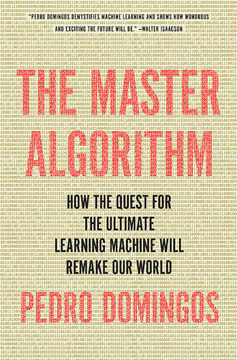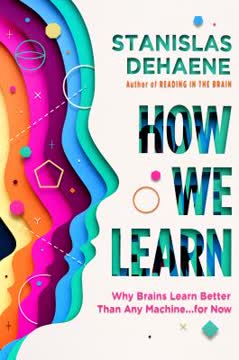Key Takeaways
1. Memory's seven sins: Transience, absent-mindedness, blocking, misattribution, suggestibility, bias, and persistence
Memory's vices are also its virtues, elements of a bridge across time that allows us to link the mind with the world.
The seven sins of memory represent common ways our memories can fail us, but they also highlight the adaptive nature of our memory system. These sins include:
- Transience: Forgetting over time
- Absent-mindedness: Lapses due to lack of attention
- Blocking: Temporary inability to retrieve stored information
- Misattribution: Attributing memories to the wrong source
- Suggestibility: Implanting false memories through leading questions
- Bias: Distorting past memories based on current knowledge
- Persistence: Intrusive recollections of traumatic events
While these sins can be frustrating or even harmful, they are often by-products of otherwise beneficial memory processes. Understanding these sins can help us appreciate the complexity of human memory and develop strategies to mitigate their negative effects.
2. Transience: Forgetting over time serves an adaptive function
A system that renders information less accessible over time is therefore highly functional, because when information has not been used for longer and longer periods of time, it becomes less and less likely that it will be needed in the future.
Forgetting as an adaptation: Transience, or forgetting over time, is often viewed negatively. However, it serves an important adaptive function in our memory system. This process helps us prioritize relevant information and discard outdated or irrelevant details.
Key points about transience:
- Follows Ebbinghaus's forgetting curve: Rapid initial forgetting, followed by a slower rate
- Helps clear out obsolete information (e.g., old phone numbers)
- Allows us to focus on more recent and potentially useful information
- Reflects environmental demands: Information not used recently is less likely to be needed
Understanding transience can help us develop better strategies for retaining important information, such as spaced repetition for learning or creating external memory aids for crucial details.
3. Absent-mindedness: Attention failures lead to everyday memory lapses
Absent-minded memory failures—misplacing keys or eyeglasses, or forgetting a lunch appointment—typically occur because we are preoccupied with distracting issues or concerns and don't focus attention on what we need to remember.
Attention and encoding: Absent-mindedness occurs when we fail to properly encode information due to lack of attention. This sin of memory is responsible for many common everyday forgetfulness experiences.
Factors contributing to absent-mindedness:
- Divided attention during encoding
- Automatic behaviors requiring little conscious thought
- Preoccupation with other concerns or tasks
To combat absent-mindedness:
- Use external memory aids (e.g., calendars, reminders)
- Develop consistent routines for important tasks
- Practice mindfulness and focus on the present moment
By understanding the role of attention in memory formation, we can develop strategies to reduce absent-minded errors and improve our ability to remember important information.
4. Blocking: Temporary inaccessibility of stored information
Blocking involves a thwarted search for information that we may be desperately trying to retrieve.
Tip-of-the-tongue phenomenon: Blocking occurs when we know we have stored information but cannot access it at the moment we need it. This frustrating experience is most commonly associated with retrieving names or words.
Characteristics of blocking:
- Often involves proper names or infrequently used words
- Can be resolved with time or cues
- More common in older adults
Strategies to overcome blocking:
- Use mnemonics or elaborative encoding techniques
- Practice retrieval of important information regularly
- Remain calm and patient, as anxiety can exacerbate blocking
Understanding blocking can help us develop more effective strategies for information retrieval and reduce the frustration associated with these temporary memory failures.
5. Misattribution: Assigning memories to the wrong source
Misattribution involves assigning a memory to the wrong source: mistaking fantasy for reality, or incorrectly remembering that a friend told you a bit of trivia that you actually read about in a newspaper.
Source memory failures: Misattribution occurs when we remember an event or piece of information but incorrectly recall its source. This sin of memory can have serious consequences, particularly in legal settings.
Types of misattribution:
- Source confusion: Mixing up the origins of information
- False recognition: Believing we've encountered something before when we haven't
- Cryptomnesia: Inadvertently claiming others' ideas as our own
To reduce misattribution:
- Pay attention to the source of information when encoding
- Use external records to track important information sources
- Be cautious when making definitive claims about memory sources
Understanding misattribution can help us be more critical of our memories and avoid potential pitfalls in decision-making and social interactions.
6. Suggestibility: Implanting false memories through leading questions
Suggestibility in memory refers to an individual's tendency to incorporate misleading information from external sources—other people, written materials or pictures, even the media—into personal recollections.
Malleability of memory: Suggestibility highlights how easily our memories can be influenced by external factors, particularly through leading questions or post-event information. This sin of memory has significant implications for eyewitness testimony and therapy practices.
Factors contributing to suggestibility:
- Leading questions in interviews or interrogations
- Exposure to misinformation after an event
- Social pressure and conformity
To reduce suggestibility:
- Use open-ended questions when interviewing witnesses
- Be aware of potential sources of misinformation
- Implement cognitive interview techniques in legal settings
Understanding suggestibility can help us be more critical of our own memories and improve the accuracy of information gathering in various contexts.
7. Bias: Present knowledge and beliefs influence memory of past events
We often edit or entirely rewrite our previous experiences—unknowingly and unconsciously—in light of what we now know or believe.
Reconstructive nature of memory: Bias in memory refers to the way our current knowledge, beliefs, and emotions can shape our recollections of past events. This sin of memory highlights the dynamic and reconstructive nature of our memory system.
Types of memory bias:
- Consistency bias: Remembering past attitudes as similar to current ones
- Hindsight bias: Believing we "knew it all along" after learning an outcome
- Egocentric bias: Remembering our own actions more favorably
Implications of memory bias:
- Can lead to overconfidence in our memories
- May distort our understanding of personal and historical events
- Can influence decision-making and problem-solving
Recognizing the presence of bias in our memories can help us approach our recollections more critically and consider alternative perspectives when evaluating past events.
8. Persistence: Intrusive recollections of disturbing events
Persistence entails repeated recall of disturbing information or events that we would prefer to banish from our minds altogether: remembering what we cannot forget, even though we wish that we could.
Adaptive function of emotional memories: Persistence refers to the intrusive and often unwanted recollection of traumatic or emotionally charged events. While distressing, this sin of memory serves an important adaptive function by ensuring we remember potentially threatening situations.
Key aspects of persistence:
- Often involves vivid, detailed memories
- Can lead to post-traumatic stress disorder (PTSD)
- Linked to activation of the amygdala and stress hormones
Coping with persistent memories:
- Seek professional help for severe cases (e.g., PTSD)
- Practice mindfulness and relaxation techniques
- Engage in exposure therapy or cognitive-behavioral therapy
Understanding persistence can help us develop more effective strategies for dealing with traumatic memories and appreciate the adaptive role of emotional memory in our survival.
9. Memory errors as by-products of adaptive features
The seven sins are not merely nuisances to minimize or avoid. They also illuminate how memory draws on the past to inform the present, preserves elements of present experience for future reference, and allows us to revisit the past at will.
Evolutionary perspective: The seven sins of memory are not design flaws but rather by-products of an adaptive memory system. This perspective helps us understand why these errors persist and how they relate to beneficial memory processes.
Adaptive features associated with memory sins:
- Transience: Prioritizing relevant information
- Absent-mindedness: Allowing automatic behaviors
- Blocking: Preventing information overload
- Misattribution: Enabling generalization and categorization
- Suggestibility: Facilitating social learning
- Bias: Supporting a coherent self-concept
- Persistence: Ensuring survival-relevant information is retained
By recognizing the adaptive nature of these memory "sins," we can develop a more nuanced understanding of human memory and work with its strengths and limitations more effectively.
10. Neuroimaging insights into memory processes and errors
Neuroimaging techniques are beginning to provide new insights into the role of the amygdala and other brain structures in persistent memories of traumatic events.
Brain-based understanding: Advances in neuroimaging techniques, such as fMRI and PET scans, have provided valuable insights into the neural mechanisms underlying memory processes and errors.
Key neuroimaging findings:
- Hippocampus: Critical for forming new episodic memories
- Prefrontal cortex: Involved in memory encoding and retrieval
- Amygdala: Plays a role in emotional memory and persistence
- Temporal pole: Associated with proper name retrieval
Implications of neuroimaging research:
- Better understanding of memory disorders (e.g., Alzheimer's disease)
- Development of targeted interventions for memory problems
- Potential for "memory truth machines" in legal settings (with limitations)
As neuroimaging techniques continue to advance, we can expect further insights into the complex workings of human memory and potential strategies for mitigating memory errors.
11. Strategies to counter memory's sins and enhance recall
To profit from mnemonics or any technique purported to improve elaborative encoding, the method must be simple enough to use regularly.
Practical memory improvement: While the seven sins of memory are inherent features of our memory system, there are various strategies we can employ to mitigate their negative effects and enhance our ability to remember important information.
Strategies for improving memory:
- Use elaborative encoding techniques (e.g., visual imagery, association)
- Practice spaced repetition for long-term retention
- Employ external memory aids (e.g., notes, calendars, reminders)
- Develop consistent routines for important tasks
- Pay attention to the source of information when encoding
- Be aware of potential biases and suggestive influences
- Seek professional help for dealing with traumatic memories
By implementing these strategies and understanding the nature of memory errors, we can work more effectively with our memory system and reduce the impact of its limitations on our daily lives.
Last updated:
FAQ
What's The Seven Sins Of Memory about?
- Exploration of Memory Flaws: The book examines the imperfections of human memory, categorizing them into seven "sins" that demonstrate how memory can fail us.
- Seven Memory Sins: These include transience, absent-mindedness, blocking, misattribution, suggestibility, bias, and persistence, each representing different types of memory errors.
- Impact on Daily Life: Schacter discusses how these memory flaws affect our everyday lives, relationships, and legal situations, emphasizing the importance of understanding memory's limitations.
Why should I read The Seven Sins Of Memory by Daniel L. Schacter?
- Insight into Memory Mechanisms: The book provides a comprehensive understanding of how memory works and why it sometimes fails, beneficial for those interested in psychology or neuroscience.
- Practical Applications: Readers can apply insights from the book to improve their memory and mitigate the effects of memory errors in daily life.
- Engaging Case Studies: Schacter uses real-life examples and case studies to illustrate concepts, making the material relatable and easier to understand.
What are the key takeaways of The Seven Sins Of Memory?
- Understanding Memory Errors: Memory is not a perfect recording of events but is subject to various errors and distortions.
- Memory as Adaptive: While memory sins can lead to problems, they are also by-products of an adaptive memory system that generally serves us well.
- Strategies for Improvement: The author suggests methods to counteract memory sins, such as enhancing encoding techniques and using external memory aids.
What are the seven sins of memory defined in The Seven Sins Of Memory?
- Transience: Refers to the gradual forgetting of information over time, a natural part of memory.
- Absent-Mindedness: Occurs when attention is diverted, leading to lapses in memory, like forgetting where you placed your keys.
- Blocking: The frustrating experience of being unable to retrieve a known piece of information, often "on the tip of the tongue."
- Misattribution: Involves recalling information correctly but attributing it to the wrong source or context.
- Suggestibility: Refers to the incorporation of misleading information into one’s memory due to external suggestions or leading questions.
- Bias: Reflects how current beliefs and emotions can distort our recollection of past events.
- Persistence: Involves the unwanted recurrence of memories, particularly of distressing events, which can be debilitating.
How does Daniel L. Schacter explain the sin of transience in The Seven Sins Of Memory?
- Natural Forgetting Process: Transience is described as the natural decay of memory over time, where details fade and are often lost.
- Ebbinghaus's Forgetting Curve: Schacter references Hermann Ebbinghaus's research, showing that most forgetting occurs shortly after learning, with a gradual decline thereafter.
- Real-Life Examples: The author illustrates transience with examples, such as forgetting details of significant events like the O.J. Simpson trial verdict over time.
What is absent-mindedness according to The Seven Sins Of Memory?
- Attention and Memory Link: Absent-mindedness occurs when attention is diverted, leading to failures in encoding information properly.
- Everyday Examples: Schacter provides relatable scenarios, such as misplacing items or forgetting appointments, to illustrate this sin.
- Impact of Automatic Behavior: The book discusses how routine tasks performed on "autopilot" can lead to absent-minded errors, as attention is not fully engaged.
How does The Seven Sins Of Memory explain misattribution?
- Source Confusion: Misattribution involves recalling information accurately but attributing it to the wrong source, leading to errors in memory.
- Eyewitness Testimony: The book discusses the implications of misattribution in legal contexts, particularly how it can lead to wrongful convictions.
- Déjà Vu: Schacter connects misattribution to experiences of déjà vu, where individuals feel a sense of familiarity with a situation that is actually new.
What role does suggestibility play in memory according to The Seven Sins Of Memory?
- Memory Distortion: Suggestibility refers to how external influences, such as leading questions, can alter or implant false memories.
- Legal Concerns: Schacter highlights the dangers of suggestibility in legal settings, where eyewitness testimonies can be compromised by suggestive questioning.
- Childhood Memories: The book discusses how children are particularly susceptible to suggestibility, which can lead to false recollections of events.
How does The Seven Sins Of Memory address the concept of persistence?
- Unwanted Memories: Persistence involves the repeated recall of distressing memories that individuals would prefer to forget, often leading to psychological distress.
- Emotional Connections: Schacter explains that emotional experiences are more likely to be remembered persistently, especially traumatic events.
- Neuroscientific Insights: The author discusses research on the brain mechanisms involved in persistence, suggesting that certain memories are prioritized for survival reasons.
What is the relationship between memory and emotion in The Seven Sins Of Memory?
- Emotional Memories: The book highlights that emotionally charged experiences are typically remembered better than neutral ones due to the involvement of the amygdala in memory processing.
- Impact of Trauma: Traumatic events can lead to persistent and intrusive memories, often linked to emotional distress and psychological disorders like PTSD.
- Coping Mechanisms: Schacter discusses how individuals can learn to manage emotional memories through therapeutic techniques that promote processing and integration of these experiences.
How can understanding the seven sins of memory improve my daily life?
- Awareness of Memory Flaws: By recognizing the common memory errors outlined in the book, individuals can become more mindful of their own cognitive processes and improve their memory strategies.
- Enhanced Critical Thinking: Understanding biases and misattributions can lead to better decision-making and more accurate assessments of situations, particularly in social and professional contexts.
- Improved Communication: Being aware of how memory works can enhance interpersonal communication, as individuals learn to clarify and confirm details rather than assume shared recollections.
What are the best quotes from The Seven Sins Of Memory and what do they mean?
- “Memory is not a tape recorder.”: Highlights the idea that memory is reconstructive rather than reproductive, meaning we do not store exact copies of experiences but reconstruct them based on various influences.
- “The past is whatever the records and the memories agree upon.”: Reflects the interplay between external records (like documents) and internal memories, suggesting that our understanding of the past is shaped by both.
- “The utility of all the passions consists in their strengthening thoughts which it is good that [the soul] preserve.”: Suggests that emotional experiences, while sometimes painful, are crucial for learning and memory, reinforcing the importance of remembering significant events.
Review Summary
The Seven Sins of Memory explores common memory failures through relatable examples and scientific research. Readers appreciate the accessible explanations of complex topics, though some find it overly academic. The book's framework of seven "sins" is seen as both insightful and potentially limiting. Many readers found the content thought-provoking, particularly regarding eyewitness testimony and false memories. While some criticize the dated information and repetitive examples, most agree it offers valuable insights into human memory's strengths and weaknesses.
Similar Books










Download PDF
Download EPUB
.epub digital book format is ideal for reading ebooks on phones, tablets, and e-readers.




